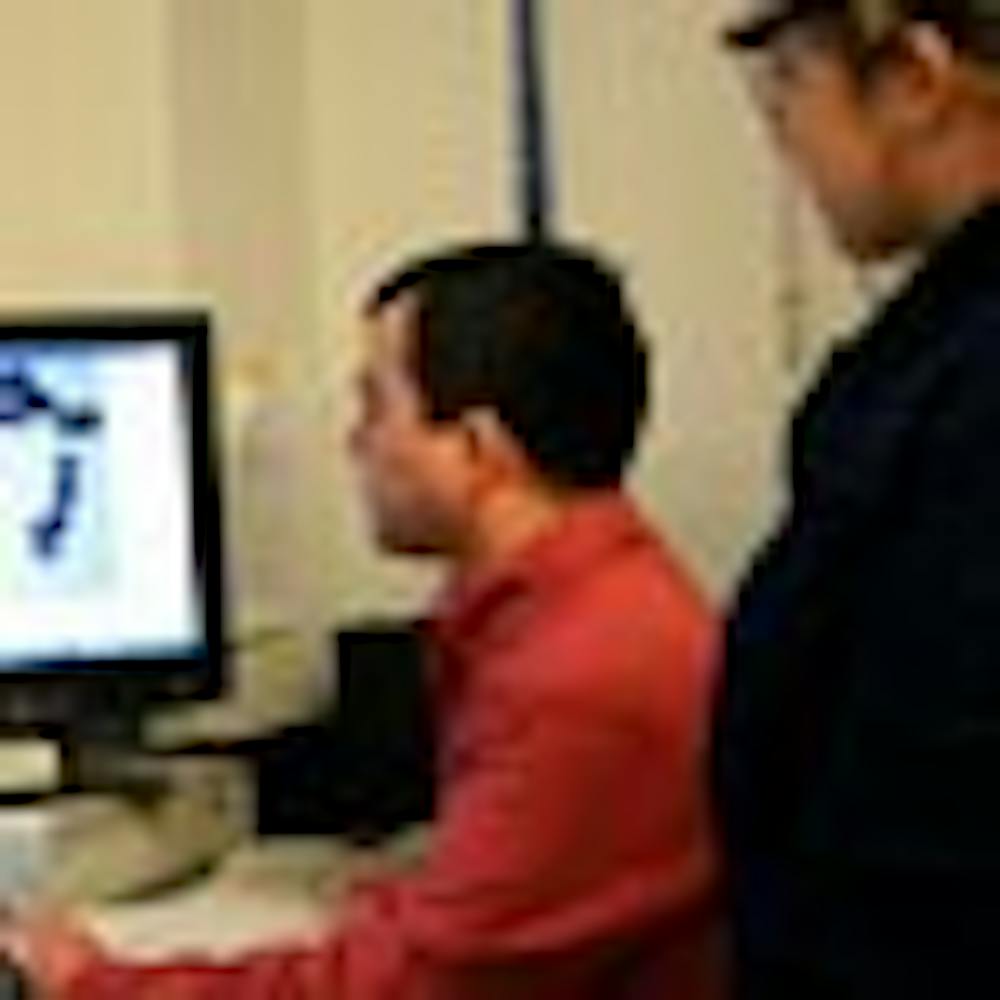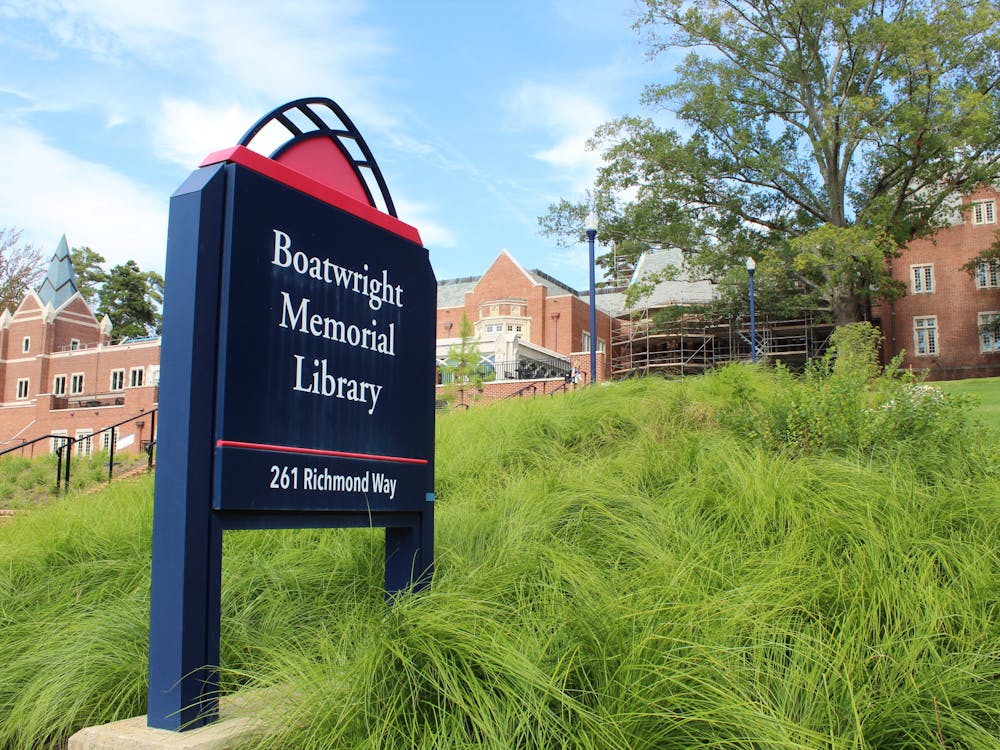Michael Leopold, associate professor of chemistry, received an annual grant of $85,000 for three years, a total of $255,000, from the National Science Foundation to continue his research on the interactions between proteins and synthetic nanomaterials.
Only three other University of Richmond professors received NSF grants during the past year, and only 79 grants have been given to Richmond professors since June 1, 1975, according to the NSF Web site.
The grant money will go toward the cost of supplies, travel expenses to present findings at the American Chemical Society meetings - including a national meeting in Washington Aug. 16 to 20 - and the employment of seven students who comprise Leopold's research team: seniors Bobby Day, Anne Galyean, Chris Gulka and Kris Gerig, and juniors Tran Doan, Callie Dowdy and Morgan Vargo.
The group researches year-round, and all four graduating seniors are interested in being hired as post-baccalaureates for 10 or more weeks during the summer to further develop their projects with the rest of the group.
Stipends are set at $4,500 per undergraduate student, and the budget for hiring post-baccalaureates or a technician is $20,000 per year. The grant also provides at least $10,000 for materials and supplies each year. The nanoparticles are expensive because they are made from solid gold, Leopold said.
"The grant is important because it allows students to conduct research on a relevant subject," he said. "They do it themselves and work with millions of dollars worth of state-of-the-art instrumentation. I haven't touched an instrument in five years, the students do all the work."
Vargo said working with Leopold provided a fun work environment.
"We work hard because of his motivation and his dedication and excitement about the work," she said.
Leopold's team is researching the use of chemically modified gold nanoparticles, called monolayer protected clusters, which are assembled onto synthetic surfaces to act as absorption platforms for proteins, Leopold said. These systems can be used to probe the electron transfer properties of immobilized redox proteins which, in turn, could help scientists better understand fundamental cellular processes - such as respiration and photosynthesis - both of which use redox proteins, he said.
The study is also significant to the development of biosensor technology, he said. Biosensor technology is the use of biological molecules to sense biological materials. For example, a scientist investigating the presence of glucose in a solution could use proteins that are sensitive to glucose as a means of detecting its presence. Nanoparticles are important for scientists interested in attaching a protein to a synthetic surface because they offer the ability to control the properties of the interface between the materials on a molecular level, he said.
In the future, nanoparticles might be used to deliver drugs directly to a targeted part of the body or to detect and target specific illnesses - such as cancerous cells - without harming the healthy cells around them, Leopold said.
In keeping with these aspirations, Leopold will go on sabbatical next year to work with University of North Carolina chemistry professor Mark Schoenfisch in the fall and to prepare for another summer of research during the spring, he said.
Enjoy what you're reading?
Signup for our newsletter
Schoenfisch studies nanoparticles that deliver nitric oxide, which is an important agent in many biological processes such as neurotransmission, immune defense, blood flow and the regulation of cell death. Leopold said he intended to implement what he learns at UNC by bringing new technology, chemistry and materials for Richmond students to work on.
"My very first paper at Richmond was based off of a student's suggestion," Leopold said of his research at Richmond. "You're really going into where the textbook stops. You try to figure out what hasn't been figured out before. Whenever possible I try to make students take ownership of that."
Day, who attributes his plans to pursue a Ph.D. in chemistry to Leopold, described Leopold's personality.
"Sometimes you might see him watching a basketball game with some of his students at The Cellar, working with a student to improve a research presentation around midnight in Gottwald or in the lab helping a student learn a new technique," Day said. "He really wants his students to succeed."
Contact reporter Avril Lighty at avril.lighty@richmond.edu
Support independent student media
You can make a tax-deductible donation by clicking the button below, which takes you to our secure PayPal account. The page is set up to receive contributions in whatever amount you designate. We look forward to using the money we raise to further our mission of providing honest and accurate information to students, faculty, staff, alumni and others in the general public.
Donate Now



